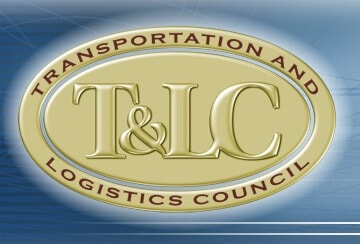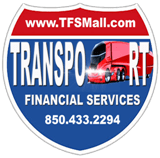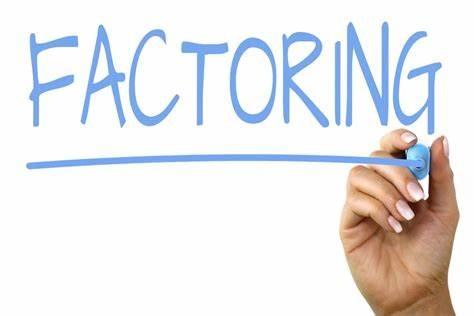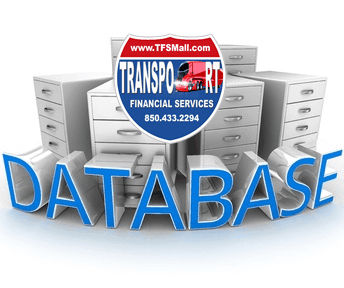Frequently Asked Questions
Welcome to Transport Financial Services, LLC (TFS) Shopping Mall. The mall is designed to assist both start-up and long-term brokers/carriers/shippers in furthering their business and using all the new technology available today to put you ahead of your competitors. As transportation consultants, we are looking to pass on our knowledge consisting of forty-five plus (+) years of hands-on personal experience in the transportation industry.
Here are a few frequently asked questions that we know will help you with both your decision-making process and working with the TFS Team! If you have questions, that are not on this list, please register for a FREE www.eTruckBook.com account and submit your question in the relevant group and a TFS team member will be there to help!
What is a business plan?
A business plan consists of a narrative and several financial worksheets. The narrative template is the body of the business plan and serves as the GPS because that is where your journey begins. It contains more than 150 questions.
What is the value in writing a business plan?
The real value of creating a business plan is not having the finished product in hand; rather, the value lies in the process of researching and thinking about your business in a systematic way. The act of planning helps you to think things through thoroughly, study, and research if you are not sure of the facts and look at your ideas critically. It takes time now, but avoid costly, perhaps disastrous, mistakes later.
How long does it take to write a business plan?
It typically takes several weeks to complete a good business plan. Most of that time is spent in research and re-thinking your ideas and assumptions, but then that’s the value of the process, so make time to do the job correctly. Those that do never regret the efforts, and finally, be sure to keep detailed notes on your sources of information and the assumptions underlying your financial data.
Do I have to have an official office?
If you are an owner-operator and plan for your family to find freight and run your office, then an office could be run out of your home.
What authorities would be required for a home-based business?
In this case, two authorities would be required, a carrier, and broker permit. The wife or employee could find right freight, contact owner-operator as a carrier, and give the overflow to either other regulated carriers.
What form of the company should I set up?
For the company that plans to have revenues of over one million dollars in annual, then an attorney should be consulted, as well as a qualified CPA. A corporate structure is best suited for a medium-sized to a larger brokerage. There are several classifications; an attorney or CPA should be consulted on this matter.
When should I have a corporation rather than just an Limited Liability Company or partnership?
The corporate shield could protect personal or other business assets from creditors, except in the case where a principal signed as a personal guarantor.
What are Limited Liability Company or Limited Liability Partnership?
Many states have created LLC and LLP structures, and an attorney should be consulted in the creation of either type as different countries treat the liabilities of these entities in different ways. There could be an alternative to a corporation, with associated cost savings for the formation.
What is a Fictitious Business Name (d/b/a or Doing Business As)?
The most common business form for a small company or partnership is known as a fictitious business name, or as express as doing business as, or DBA (Doing Business As). This formation does not protect against bankruptcy.
Do I need investment capital to start my small business?
A start-up using the home as an office does not require a significant investment, but there should sufficient working funds for the initial start-up. A small home-based business should have for $25,000 to $45,000 in start-up funds, plus additional to a computer, a telephone, and a fax machine.
Why are there brokers?
The transportation industry has changed drastically since the Interstate Commerce Commission “ICC Termination Act of 1995,” which deregulated the trucking and the transportation industry. Before 1980, there was only one authorized broker operating in the United States, but after 1995, there have been thousands of Property Brokers authorized to broker property. Within the U.S., Brokering has become an integral part of the transportation mix. Brokers perform an essential function within the logistics and transportation industry. Carriers rely on brokers to supply them with freight, both as front haul as well as back-haul freight.
Shippers look to brokers to fulfill the vital function of supplying the many trucks required to meet their shipping needs. The small fleets and owner-operators find that the broker can provide freight needed by the carrier. I am thereby relieving the carrier’s need for hiring a sales force to find transportation for their company. Shippers, on the other hand, may need hundreds of trucks a day to move their freight. Rather than calling carriers, the shippers can have one call, find one or one hundred vehicles.
What is a Truck Broker?
The technical terminology for what a referred to as a “Truck Broker” is really, a “third party” logistics provider. The Federal Motor Carrier Safety Administration (FMCSA) would classify it as a “Property Broker.” The other type of broker referred to as a “Household Goods Broker.”
A third-party logistics provider is rarely or if ever shown as a party to the Bill of Lading, which is the controlling document in the movement of freight in interstate commerce. Therefore, a broker should have well written “rate agreement,” linking you directly with the shipment.
What is Double Brokering?
The hotly debated issue in today’s transport industry is “double brokering.” Although this practice is not spelled out as an illegal practice in any of the FMCSA’s broker regulation, it is not a good practice, and many carriers will not accept any such shipment. Most importantly delivering carriers will not get paid. The underlying broker bond form, BMC-84 or surety/trust bond BMC-85 does not allow for payment to a broker, only amount to a regulated carrier or shipper.
What is the role of a Property Broker in Interstate Commerce?
The essential duty of a broker in interstate commerce is to become a third party in a transportation transaction. In a traditional movement of freight, the shipper would contact a carrier and contract with him or her to deliver a sum of cargo for a set amount of money (a rate).
When a broker enters the picture, the circumstances change drastically, no longer is the trucker the second party to the movement, but the “broker” becomes the second party, and the trucker becomes the “third party” to the transaction.
The broker assumes the responsibility of paying the trucker for the transportation charges. In one sense, the transportation pie becomes smaller because the broker has inserted himself in the middle of the transaction but assumes the reconcilability of paying the carrier and collecting from the shipper. The carrier is assured of being paid and is relieved of the duty of billing the shipper.
The most important responsibility of the Property Broker is the selection of a “Bona Fide Carrier” authorized by the Federal Motor Carrier Safety Administration (FMCSA) to operate as a: Contractor Common Carrier in interstate commerce.
The authorized property broker solely must ensure that the carrier they select has a valid Motor Carrier (MC) number, and US DOT number, and is in good standing with the FMCSA. The broker must be informed as to their cargo and liability insurance coverage before the shipper releases freight to the carrier.







